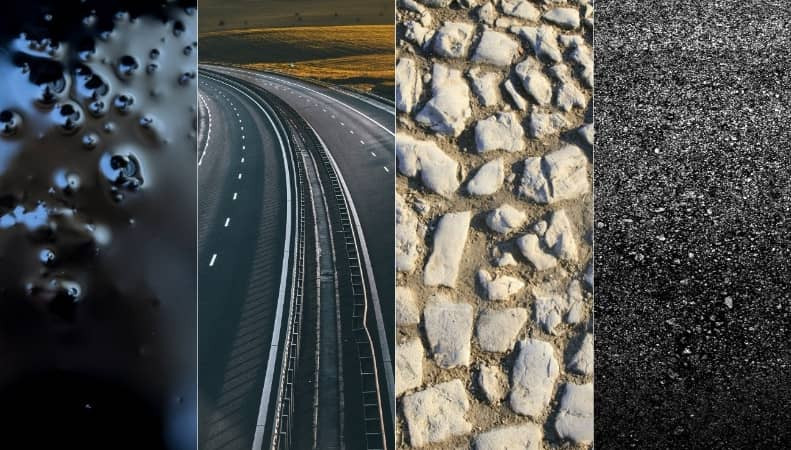TAR, TARMAC, MACADAM, AND ASPHALT – WHAT’S THE DIFFERENCE?
If you've ever driven on a road, you've likely encountered one of these terms. But what exactly do they mean, and what makes them different? Here's a detailed look at the history and differences between tar, tarmac, macadam, and asphalt.
Tar: Tar is a black, viscous liquid that is made from the heating of coal, oil, or wood. It has been used for thousands of years for a variety of purposes, including as a waterproofing material and as a binding agent in construction. Tar was first used in road construction in the late 19th century, when it was mixed with gravel to create a hard, durable surface.

Shop Our Range of Tar & Bitumen
Tarmac: Tarmac is actually a brand name that originated in the UK. The term was used to describe a new type of road surface that was created by mixing tar with crushed stone. This combination created a hard, durable surface that was resistant to weather and traffic. The term “tarmac” eventually became synonymous with all asphalt surfaces, regardless of the type of binding agent used.

Macadam: Macadam is a type of road construction that was developed in the industrial revolution during the 19th century by John Loudon McAdam. It involves laying down layers of small stones, or macadam, and compacting them to create a solid road surface. Macadam roads were a major improvement over previous road construction methods, as they provided a smooth, durable surface that was less likely to become muddy or rutted.

Asphalt: Asphalt is a mixture of crushed stone and a binding agent, typically bitumen. It is commonly used in road construction, as it provides a strong, durable surface that is resistant to weather and traffic. Asphalt can be either hot or cold, depending on the manufacturing process.In the past, hot asphalt was the only option for road construction. However, in recent years, cold asphalt has become an increasingly popular option. Cold asphalt is made from a mixture of bitumen and crushed stone, but it does not require heating during the manufacturing process. This makes it an environmentally friendly and cost-effective solution for road repairs, particularly for fixing potholes.

In conclusion, tar, tarmac, macadam, and asphalt are all terms that are related to road construction. Tar and tarmac refer to a mixture of crushed stone and a binding agent that was created using tar, while macadam is a type of road construction that was developed by John Loudon McAdam. Asphalt is a more modern type of road construction that uses a mixture of crushed stone and a binding agent, typically bitumen, to create a strong, durable road surface. Today, cold asphalt is an important solution for repairing potholes and other road defects permanently, as it is environmentally friendly, cost-effective, and easy to use.


